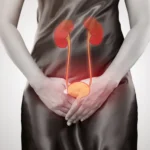What are Incontinence Supplies?

There are millions of people, worldwide, living with incontinence. Not all incontinence conditions are the same. There is urinary incontinence, bowel incontinence, bladder incontinence and stress incontinence. There are also different levels of incontinence, as incontinence will affect everyone differently. As a result, treatments, products and supplies won’t be the same for everyone. And it can be difficult to work out the right supplies for… read more >









